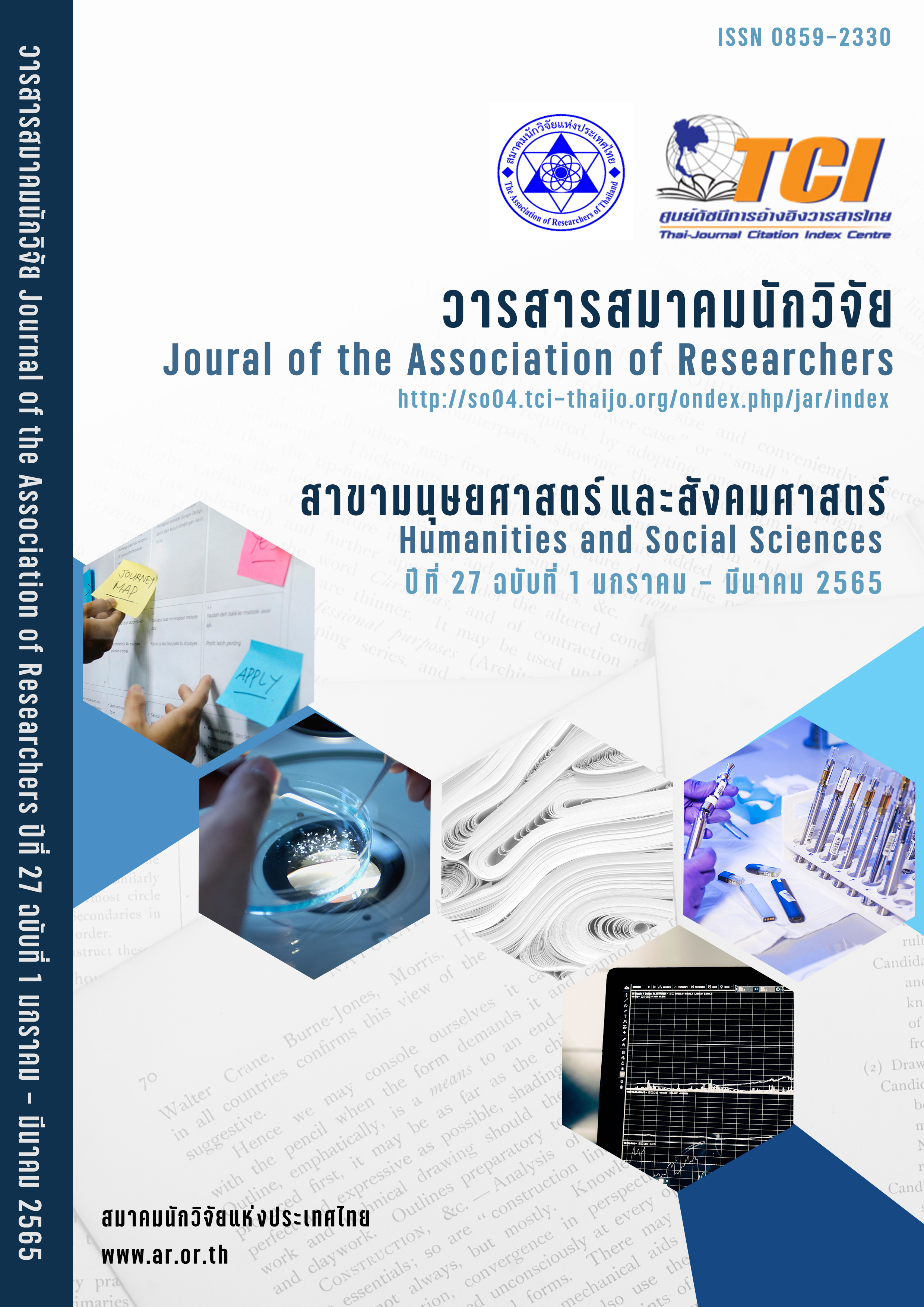The Effect of Family Aspects on Corporate Governance and Firm Performances: Empirical Evidences of the Family Business Companies listed on the Stock Exchange of Thailand and the Market for Alternative Investment
Main Article Content
Abstract
The objectives of the present research article were to 1) examine the effect of the family aspects including family ownership concentration, family management, and family control of board on their financial performances of the family business companies listed in the Stock Exchange of Thailand (SET) and the Market for Alternative Investment (MAI); 2) to examine the effect of the family aspects including family ownership concentration, family management, and family control of board on their corporate governance of the family business companies listed in the SET and MAI. 3) to examine the effect of corporate governance on financial performances of the family business companies listed in the SET and the MAI; and 4) to examine indirect effect of the family aspects including family ownership concentration, family management, and family control of board on their financial performances via corporate governance of the family business companies listed in the SET and the MAI. The data was collected from 100 family business companies listed in the SET and in the MAI as population with a period of the study from Jan 1, 2015 to December 31, 2019.
The SEM model fit analysis the research found that all indices analyzed were found to be harmonious therefore significant in the context of the present study. The SEM path analysis found significant relationship between Family Control of the Board (FCB) and Firm’s Financial Performance (FFP). No significant relationship was found between Family Ownership Concentration (FOC), Family Management (FM), FCB, and Corporate Governance (CG) variables. Corporate Governance doesn’t show any mediating effect between family aspects and firm’s financial performances. These research insights are useful in understanding how family management through control of board affects a company’s performance in Thailand in the present years.
Article Details

This work is licensed under a Creative Commons Attribution-NonCommercial-NoDerivatives 4.0 International License.
บทความที่ปรากฏในวารสารนี้ เป็นความรับผิดชอบของผู้เขียน ซึ่งสมาคมนักวิจัยไม่จำเป็นต้องเห็นด้วยเสมอไป การนำเสนอผลงานวิจัยและบทความในวารสารนี้ไปเผยแพร่สามารถกระทำได้ โดยระบุแหล่งอ้างอิงจาก "วารสารสมาคมนักวิจัย"
References
Amran, N. A. & Ahmad, A. C. (2009). Family business, board dynamics and firm value: Evidence from Malaysia. Journal of Financial Reporting and Accounting, 7(1), 53-74
Anderson, J. C., & Narus, J. A. (2003). Selectively pursuing more of your customer's business. MIT Sloan Management Review, 44(3), 42.
Barth, H., Kanwisher, N. & Spelke, E. (2003) Cognition 86, 201–221. Family-owned businesses: Leading in an evolving business
ecosystem: Deloitte Thailand: Business. Deloitte Thailand. (2020, August 24). https://www2.deloitte.com/th/en/pages/deloitte-private/articles/family-owned-business.html. EFB, 2021
Habbershon, T.G., Williams, M.L., & Daniel, J. (1995). Toward a definition of `families'. Working Paper. Snider Entrepreneurial Research Center, Wharton School, University of Pennsylvania.
Hamberg, M., Fagerland, A. E., & Nilsen, K. K. (2013). Founding-family firms and the creation of value: Swedish evidence. Managerial Finance, 39(10), 963-978.
Ibrahim H., F. A. Samad (2011). Corporate Governance Mechanisms and Performance of Public-Listed Family-Ownership in Malaysia, Vol.3, No.1.
Kline, R. B. (2011). Methodology in the Social Sciences. Principles and practice of structural equation modeling (3rd ed.). Guilford Press.
Muttakin, M. B., Mihret, D. G., & Khan, A. (2018). Corporate political connection and corporate social responsibility disclosures: a neo-pluralist hypothesis and empirical evidence. Accounting, Auditing & Accountability Journal, (just-accepted), 00-00.
Pukthuanthong, K., J. Walker, T., Thiengtham, D. N., & Du, H. (2013). Does family ownership create or destroy value? Evidence from Canada. International Journal of Managerial.PricewaterhouseCoopers. (n.d.). Thailand Family Business Survey 2019.PwC. https://www.pwc.com/th/en/services/epb/thailand-Family-Business-survey-2019.html.
PricewaterhouseCoopers. (n.d.). Family Business Survey 2021. PwC. https://www.pwc.com/gx/en/services/family-business/family-business-survey.html.
Gul, S., Sajid, M., Razzaq, N., & Afzal, F. (2012). Agency Cost, Corporate Governance and Ownership Structure (The Case of Pakistan). International Journal of Business and Social Science, 3 (9), 268-277.
Shyu, J. (2011). Family ownership and firm performance: evidence from Taiwanese firms. International Journal of Managerial Finance, 7(4), 397-411.
D. G. Sirmon, M. A. Hitt (2003) Managing Resources: Linking Unique Resources, Management, and Wealth Creation in Family Firms. Department of Management, College of Business, Arizona State University, Tempe, AZ 85287-4006
T. López-Guzmán, A. Vieira-Rodríguez, J. Rodríguez-García. Profile and motivations of European tourists on the Sherry wine route of Spain. Tourism Management Perspectives, 11 (2014), pp. 63-68
Westhead, P., & Cowling, M. (1998). Family firm research: The need for a methodological rethink. Entrepreneurship Theory and Practice, 23(1), 31- 56.


